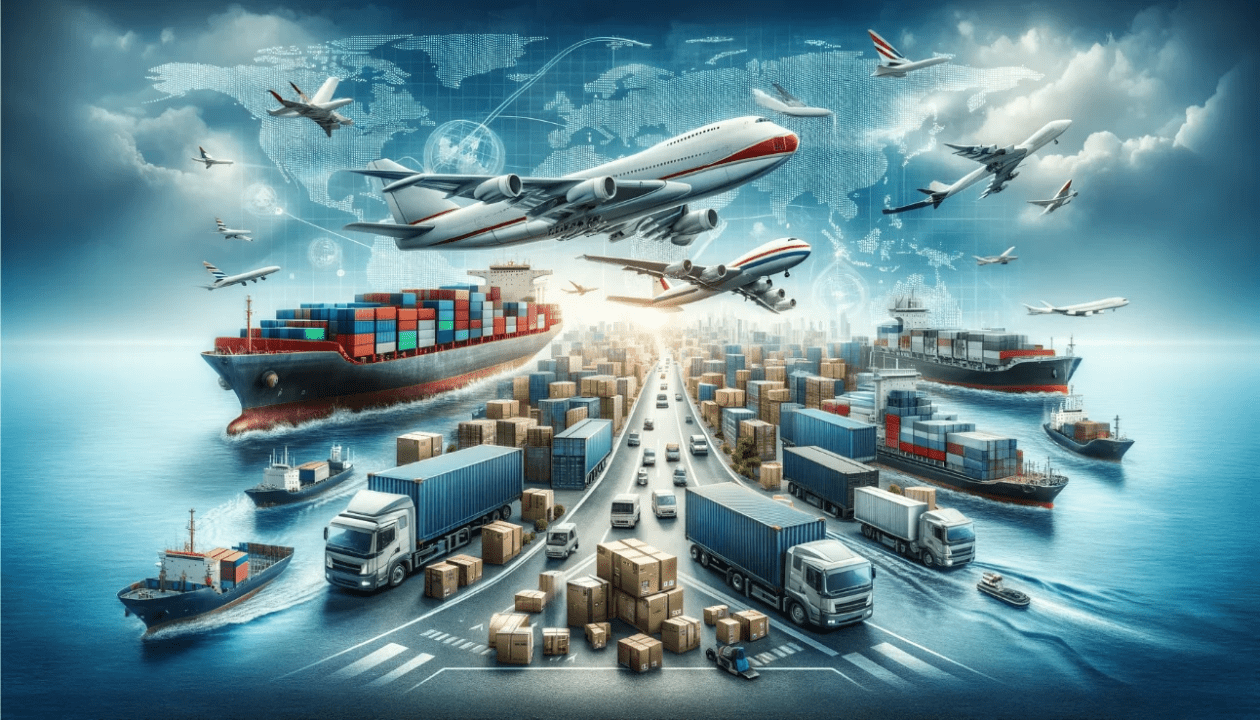
In a world that runs on international commerce, the ability to move goods efficiently, reliably, and cost-effectively is the backbone of success for companies across industries. International freight forwarding and logistics services make this possible, bridging the gap between manufacturers, suppliers, and consumers. Companies like https://martin-spedition.de/ Martin Spedition have built their reputation by offering scalable worldwide transport solutions that empower businesses to operate globally without losing sight of local efficiency.
Whether you’re a startup shipping your first container overseas or a multinational corporation managing thousands of shipments monthly, a trusted logistics partner is essential to ensure smooth operations across borders.
Understanding the Core of International Freight Forwarding
Freight forwarding is much more than simply arranging cargo to be moved. It’s a strategic service that involves planning and executing the transport of goods through various modes of transport—air, sea, rail, and road—while ensuring compliance with international trade regulations and minimizing risks along the supply chain.
International freight forwarders act as the link between shippers and transportation services. They coordinate each step of the journey: picking up goods at the point of origin, organizing transportation, preparing documentation, handling customs clearance, and delivering the goods to their final destination. A proficient freight forwarder doesn’t just move goods—they solve logistical challenges and optimize delivery performance.
Why Logistics Matters in a Globalized World
With international markets more connected than ever, businesses rely on logistics to stay competitive. Customers expect fast delivery, accurate tracking, and responsive service, regardless of where a product originates. Logistics ensures that goods get to market on time, in good condition, and at the lowest possible cost.
Some key reasons why global logistics has become a cornerstone of modern business include:
- Expanding Markets: Companies can sell their products globally, but only if they have a logistics strategy that supports international delivery.
- Just-In-Time Supply Chains: Many industries, like automotive and electronics, rely on timely delivery of parts to maintain production schedules.
- E-Commerce Growth: With online retail booming, logistics must be fast, flexible, and responsive to consumer demands.
- Risk Management: Effective logistics planning helps companies adapt to disruptions—whether from weather, port closures, or political events.
Modes of International Transport: Choosing the Best Fit
Each transport method has its advantages and trade-offs. Freight forwarders design routes that balance cost, speed, and cargo type, often using a combination of these methods:
1. Ocean Freight
The most common method for international shipping, particularly for large or heavy cargo. It’s economical but slower than other options, and ideal for bulk shipments or non-perishable items.
2. Air Freight
The fastest way to move goods internationally, air freight is suited for time-sensitive, high-value, or perishable items. Though more expensive, it offers unmatched speed and reliability.
3. Rail Freight
A cost-effective and environmentally friendly alternative for land transport, especially across Europe and between Asia and Europe. It supports containerized shipping and is faster than sea freight.
4. Road Freight
Essential for door-to-door delivery and short to medium-distance transport, especially within regions. Road freight also complements air and sea transport as the final-mile solution.
Martin Spedition specializes in creating seamless, multimodal solutions by combining different methods to fit the needs of every shipment and customer.
Documentation and Compliance: Navigating International Regulations
Shipping goods internationally involves a lot of paperwork. From bills of lading to customs declarations and certificates of origin, proper documentation is critical to avoid delays, fines, or seizure of goods.
A good freight forwarder:
- Ensures all required documents are accurately prepared and submitted.
- Keeps up with constantly changing regulations.
- Manages duties, taxes, and tariffs for each country of origin and destination.
- Coordinates with customs brokers to ensure clearance without hold-ups.
Martin Spedition’s in-depth regulatory knowledge and commitment to compliance make it a trusted partner for international shippers seeking smooth customs clearance and risk mitigation.
Warehousing and Inventory Management
Modern logistics includes more than just transportation. Many freight forwarders offer warehousing and inventory services as part of their end-to-end solutions. These facilities allow businesses to store products closer to their customers and reduce delivery lead times.
Strategically located warehouses also enable:
- Order consolidation and deconsolidation.
- Packing and labeling for retail distribution.
- Inventory monitoring and replenishment.
Martin Spedition offers flexible warehousing solutions designed to support scalable growth, even as logistics needs evolve.
Real-Time Tracking and Visibility
One of the biggest concerns for companies shipping internationally is visibility—knowing where their goods are and when they will arrive. Implementing smart shipping strategies can further streamline operations and ensure timely deliveries across borders. Thanks to modern logistics technology, this is no longer a challenge.
With advanced tracking systems and integrated platforms, shippers can now:
- Monitor cargo in real time.
- Receive automated updates at every key milestone.
- Access shipping documentation through digital portals.
- Predict and respond to delays more effectively.
Martin Spedition uses the latest digital tools to offer complete transparency and control, keeping clients informed and empowered at all times.
The Role of Sustainability in Logistics
As environmental awareness increases, companies are placing a stronger emphasis on sustainable logistics practices. Freight forwarders are responding by optimizing transport methods and reducing carbon emissions.
Sustainable logistics practices include:
- Route Optimization: Using software to reduce fuel consumption and emissions.
- Modal Shift Strategies: Replacing air or road transport with rail or sea where possible.
- Carbon Offsetting: Investing in environmental projects to balance the impact of emissions.
- Sustainable Packaging: Minimizing waste and using recyclable materials.
Martin Spedition is committed to sustainable logistics, continuously finding ways to reduce environmental impact while maintaining operational efficiency.
Risk Management and Problem Solving
Shipping across borders introduces several risks: political unrest, port strikes, weather delays, and even piracy in some regions. Logistics providers need to be proactive, not just reactive.
A forwarder with strong risk management capabilities will:
- Offer cargo insurance for full protection.
- Monitor geopolitical developments.
- Create contingency plans for alternative routes.
- Communicate proactively with clients in case of disruptions.
Martin Spedition takes a proactive approach to risk, ensuring that clients are protected and informed at every step.
Serving a Diverse Range of Industries
International freight forwarding is critical across many sectors, each with its own unique logistics requirements:
- Automotive: Just-in-time delivery, parts tracking, and vehicle transport.
- Pharmaceuticals: Temperature-controlled shipping and compliance with health regulations.
- Retail: Fast-moving consumer goods, seasonal inventory, and returns management.
- Industrial Manufacturing: Oversized and heavy equipment with special handling.
- Food & Beverage: Perishable goods requiring precise timing and temperature control.
With extensive experience in multiple industries, Martin Spedition tailors logistics strategies to each client’s business model and sector-specific needs.
Why Martin Spedition Stands Out
What distinguishes Martin Spedition in a highly competitive industry?
- Global Reach with Local Expertise: A vast international network supported by deep knowledge of local regulations and markets.
- Custom-Built Solutions: No one-size-fits-all approach. Every shipment gets a tailored logistics plan.
- Commitment to Service: Fast communication, accurate updates, and customer-first problem solving.
- Innovation: Embracing digital transformation to offer smarter, faster, and more transparent services.
- Sustainability Focus: Integrating environmental responsibility into every stage of the supply chain.
By choosing Martin Spedition, businesses gain more than a logistics provider—they gain a strategic partner who understands the complexities of international trade and delivers with precision.
Conclusion: The Future of Global Logistics
As international trade continues to evolve, the demand for agile, intelligent, and sustainable freight forwarding solutions will only increase. Companies that invest in smart logistics strategies now will be the ones that thrive in the future.
With trusted partners like Martin Spedition, businesses can access the tools, technology, and expertise needed to navigate the global marketplace with confidence. Whether it’s a single shipment or a long-term supply chain project, international freight forwarding and logistics services are the invisible engines that power the world economy—delivering value, reliability, and peace of mind, one shipment at a time.



